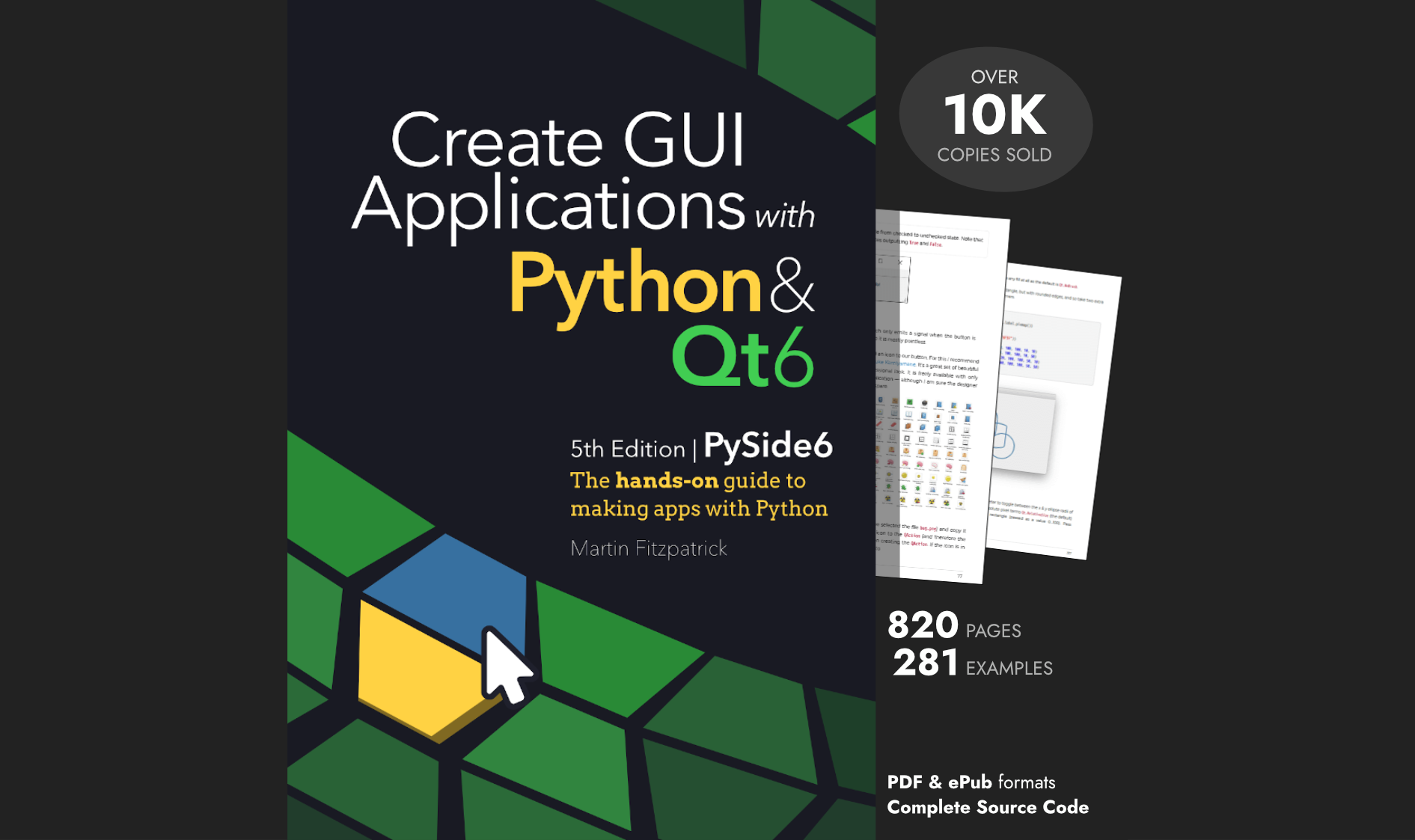It's been a very good year.
Back in May I was looking through my collection of PyQt tutorials and videos and trying to decide what to do with them. They were pretty popular, but being hosted on multiple sites meant they lacked structure between them and were less useful than they could be. I needed somewhere to put them.
Having looked the options available for hosting tutorials and courses I couldn't find something that fit my requirements. So I committed the #1 programmer mistake of building my own. pythonguis.com was born, and it turned out pretty great.
Built on the Django-based Wagtail CMS it has been extended with some custom apps into a fully-fledged learning management system_._ But it's far from complete. Plans include adding progress tracking, certificates and some lightweight gamification. The goal here is to provide little hooks and challenges, to keep you inspired and experimenting with PyQt (and Python). The site uses a freemium model — detailed tutorials, with an upgrade to buy video courses and books for those that want them.
The availability of free tutorials is key — not everyone wants videos or books and not wanting those things shouldn't stop you learning. Even so, the upgrade is a one-off payment to keep it affordable for as many people as possible, no subscriptions here!
New Tutorials
Once the existing tutorials and videos were up and running I set about creating more. These new tutorials were modelled on the popular multithreading tutorial, taking frequently asked PyQt5 questions and pain points and tackling them in detail together with working examples. This led first to the (often dreaded) ModelView architecture which really isn't that bad and then later to bitmap graphics which unlocks the power of QPainter giving you the ability to create your own custom widgets.

As the list of obvious targets dries up I'll be adding a topic-voting system on site to allow students to request and vote for their particular topics of interest, to keep me on topic with what people actually want.
New Videos
The video tutorials were where it all started, however in the past year these have fallen a little behind. This will be rectified in the coming months, with new video tutorials recorded for the advanced tutorials and updates to the existing videos following shortly after. The issue has been balancing between writing new content and recording new content, but that problem is solved now we have...
New Writers
With the long list of things to tackle I was very happy to be joined this year by a new writer — John Lim. John is a Python developer from Malaysia, who's been developing with PyQt5 for over 2 years and still remembers all the pain points getting started. His first tutorials covered embedding custom widgets from Qt Designer and basic plotting with PyQtGraph both of which were a huge success.
If you're interested in becoming a writer, you can! You get paid, and — assuming you enjoy writing about PyQt — it's a lot of fun.
New Types of Content
In addition to all the new tutorials and videos, we've been experimenting with new types of content on the site. First of all we have been working on a set of example apps and widgets which you can use for inspiration — or just plain use the code from — for your own projects. Everything on the site is open source and free to use.

We've also been experimenting with alternatives short-form tutorials & docs for core Qt widgets and features. The first of these by John covers adding scrollable regions with QScrollArea to your app. We'll have more of these, together with more complete documentation re-written for Python coming soon.
New Year
That's all for this year.
Almost. We're currently running a 50% discount on all courses and books with the code NEWYEAR20. Every purchase gets unlimited access to all future updates and upgrades, so this is a great way to get in ahead of all the good stuff coming down the pipeline.
The same code will give 20% off after New Year. Feel free to share it with the people you love, or wait a few days and share it with people you love slightly less.
Thanks for all your support in 2019, and here's to another great year of building GUI apps with Python!

